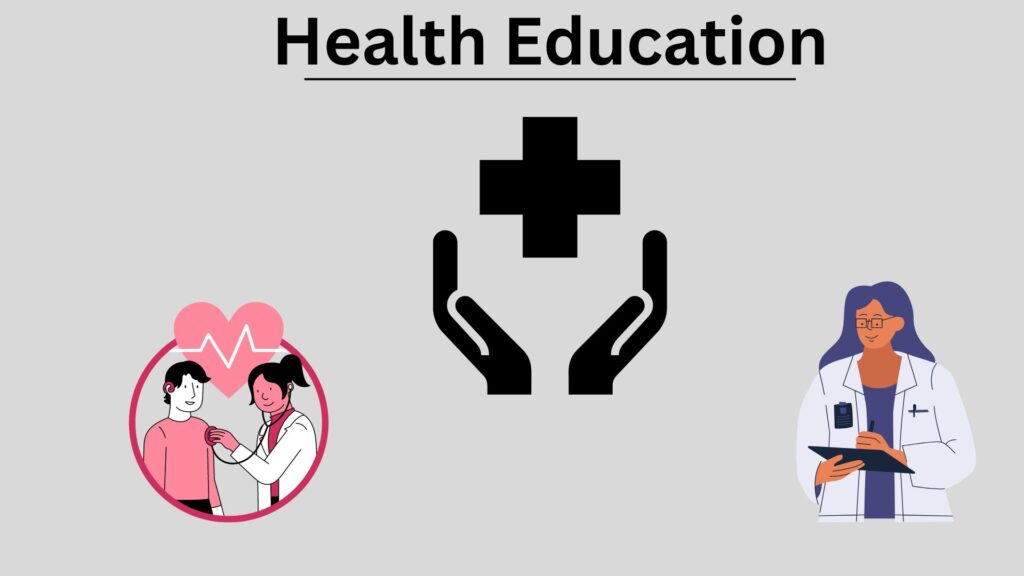health education define and stages
Health Education
Definition: Health education like general education is concerned with the change in knowledge feeling and behavior of people.
We have described in article :
Aim and object of health education
Stages of health education
Content of health education
Principal of health education
Different method of health education

Aims and objective of health education:
- To cultivate the desirable health practices and health habits.
- To develop the health attitudes.
- To appreciate the health programmes undertaken and to improve the school and community.
- To develop health consciousness in the school and in the community.
- To teach pupils the rules for the preservation and development of their physical, mental and emotional health.
- To eradicate the disease through health drive programmes.
- To remove the superstition in the community.
- To provide a healthful environment for physical and mental growth.
- To improve the general conditions of living m the community.
- To instruct the children and youth so as to conserve and improve their own health.
Stages of health education:
- Awareness: At this stage, the person comes to know about the new idea of practices.
- Interest: At this stage, the person seeks more detailed information.
- Evaluation: At this stages, the person weight th pros and cons of the practices and evaluates it usefulness to him or his family by mental exercise and reach a decision.
- Trial: At this stages the positive decision is put into practice.
- Adoption: At this stage, the person decides that new practice is good and adopts it.
Content of health education:
- Human biology
- Nutrition
- Hygiene Personal and environmental.
- Family health care.
- Control of communicable and non communicable diseases
- Mental health.
- Prevention of accidents.
- Use of health services
Principles of health education:
- Interest: Unless people are interested, they will not learn. Health education should therefor relate to the interest of the people.
- Participation: It is based on the psychological principles of active learning.
- Comprehension : The teaching should be within the mental capacity of the people.
- Reinforcement : Repetition of teaching at intervals is useful.
- Motivation : Stimulation or awakening of the desire to learn is called motivation.
- Learning by doing : Learning is an action process.
- Known to unknown : In health education work, we proceed from the known to the unknown.
- Soil, seed, sower: The people are the soil, the health facts the seed and the transmittin media the sower.
- Good human relationship : The health educator must be kind and sympathetic, people m respect him as their real friend.
- Leaders : Local leaders such village headman, the school teacher or the political leader.
Different methods of health education :
A. Individual approach :
- Personal contact or interviews
- Home visits.
- Personal letter
B. Group approach
- Lecture
- Demonstrations
- Discussion methods :
- Group discussion
- Panel discussion
- Seminar
- Symposium
- Workshop
- Convention
- Conference
C. Mass communications :
- Television
- Radio
- Films
- Poster
- Health magazine
- Health museum.

Good and informative content.
Great post. I am facing a couple of these problems.